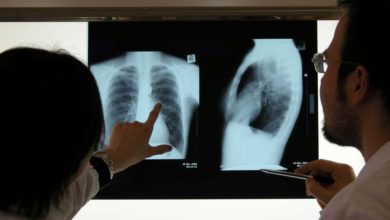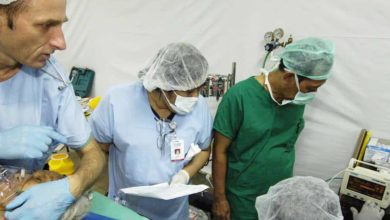During the first week of second year we were surprised to learn that our first patient interaction would be in the form of a timed practical test. We were recorded taking a teenage patient’s history and performing a physical to clear him to play high school soccer. We then had to review our tape and assess the interaction. The patient (an actor) also graded our performance.
Over the summer aside from a two-week internship in the hospital I had next to zero patient contact, and my interviewing skills felt proportionally rusty. I walked out of the test feeling confident that I had elicited the right information and ruled out any dangerous pathology while thoroughly addressing the patient’s concerns. I was unsure however about whether my interview style had been entirely appropriate. Specifically, when the patient told me that his dad was pressuring him to make the varsity soccer team I related back that I too had felt pressured by my parents to excel in tennis and academics in high school. This common ground helped me quickly build rapport and empathize with the patient about the burden of parental expectations. Though the information itself was rather trivial, the self-disclosure left me feeling uncomfortable.
When I asked the tutors of my Doctoring class, (part of the curriculum aimed at improving our interviewing skills), about this situation, both responded that self-disclosure by physicians should be strictly limited. It is better to remain focused on the patient and maintain one’s professionalism, they said. Additionally, a physician should have “tools” other than her own history, such as body language and tone of voice, to empathize with her patients. These seemed like excellent points.
After class I went home to read the patient’s comments: “The student was able to connect with me on a personal level about parents who put pressure on their kids to do things they don’t want to, which made me feel completely understood…” In this case, disclosure potentially helped me earn my patient’s trust. I was under time pressure, and this was an expedient way to relate. Additionally, it simply felt more natural on a human level. Now only in the early part of my second year, I have not yet adopted the purely professional approach to the interview that my tutors have encouraged.
Sharing information is our social habit. You tell me about your day, and I in turn tell you about mine. Even on an airplane we sometimes share details about ourselves back and forth with a row mate to forge a fleeting personal connection. In traditional social interactions, we exchange information rather than collecting it from one side, particularly when the information includes intimate personal details.
As professionals, however, we remove ourselves from this social norm to perform the selfless task of giving our attention completely over to the care of other human beings. In an ideal scenario, our personal lives are removed from the equation of patient-centered care – we focus entirely on the patient’s problems without muddying the relationship with our own. We collect information in order to best diagnose, treat, and manage disease. Indeed, patients rely on our professionalism for this task.
As professionals (and professionals-in-training) we grow accustomed to this removed position when dealing with pain and suffering. We comfort families experiencing tragedy while never fully revealing ourselves to them. We have the privilege of remaining aloof to pain by not openly acknowledging our own. Thus in the doctor-patient relationship we are never vulnerable – our professional status provides a buffer that protects us from getting too close.
What happens then, when we face tragedy? What happens when we are the patient or family member, no longer protected from pain by our white coat shield? This discomfort is compounded by the fall from a position of authority – the exposure and vulnerability more palpable.
I found I was unprepared to deal with this brand of suffering when a friend and colleague recently had the table turned on her as a close family member was diagnosed with a rare disease. Since we are classmates I did not have the benefit of additional medical expertise to fall back on or professional distance from which to offer words of comfort; yet, having recently learned to limit self-disclosure, I was reticent to empathize using my own experiences of fear, tragedy, and loss. The greatest sources of comfort to me in the past however were those friends that shared in my pain by telling me their own stories of loss. The traditional human-to-human exchange made me feel cared for and less isolated when my world felt like it was crumbling. With my friend I found myself suggesting mental health resources and offering to buy groceries or cook a meal – problem-solving rather than connecting. Ironically, my training to provide compassionate care to patients has made me worse at being a compassionate friend.
The purpose of this essay is not to find fault with medical training or doctor-patient interactions. Rather, it is to observe how my path to medicine is transforming my own personal and professional relationships in unexpected ways. I am still unsure of the proper level of self-disclosure with patients, but I trust that with time I will find a comfortable balance. Training to become a doctor is all consuming: My days are filled with studying, facts from lectures creep into my dreams. Books and articles about medicine comprise my leisure reading, and I start conversations with “We had this really interesting case today…” I hope, however, that as I continue on in my career and medicine becomes not only what I do but who I am, I do not allow the skills derived from my training to supplant my instinct for basic human interaction. I never again want to falter when a friend is in pain. With all that I am gaining from the pursuit of my dream profession, I hope never to lose the ability to comfort, care, and connect – the purpose with which I first donned my white coat.



